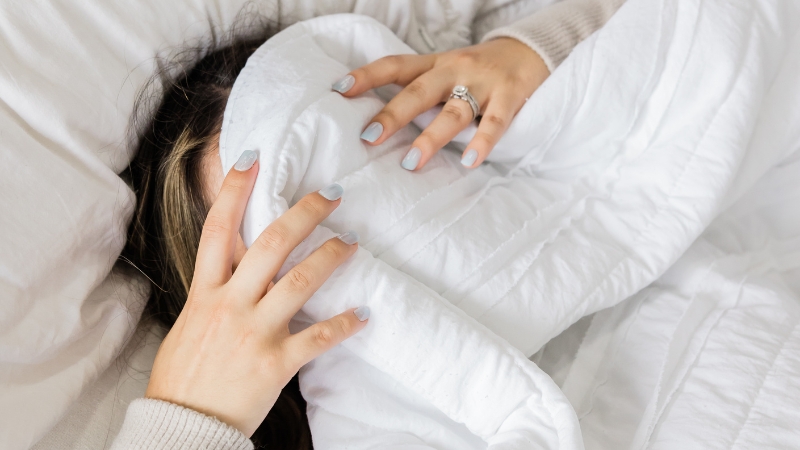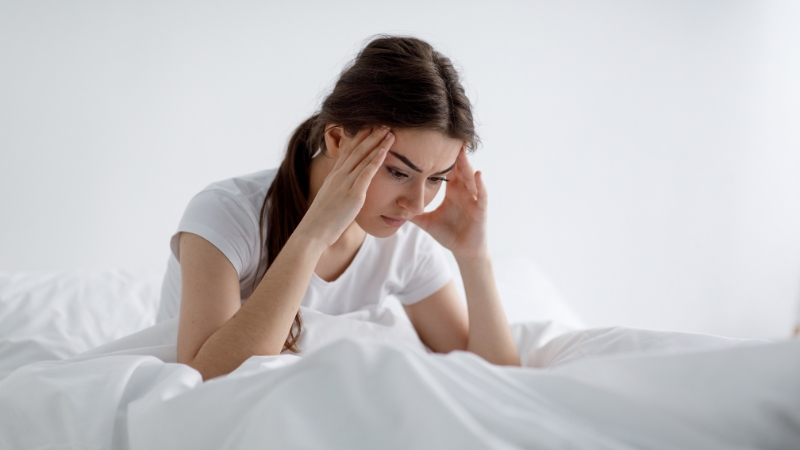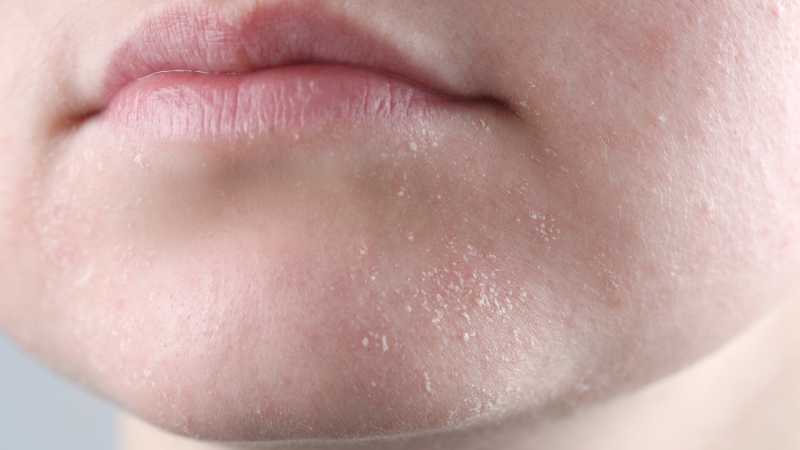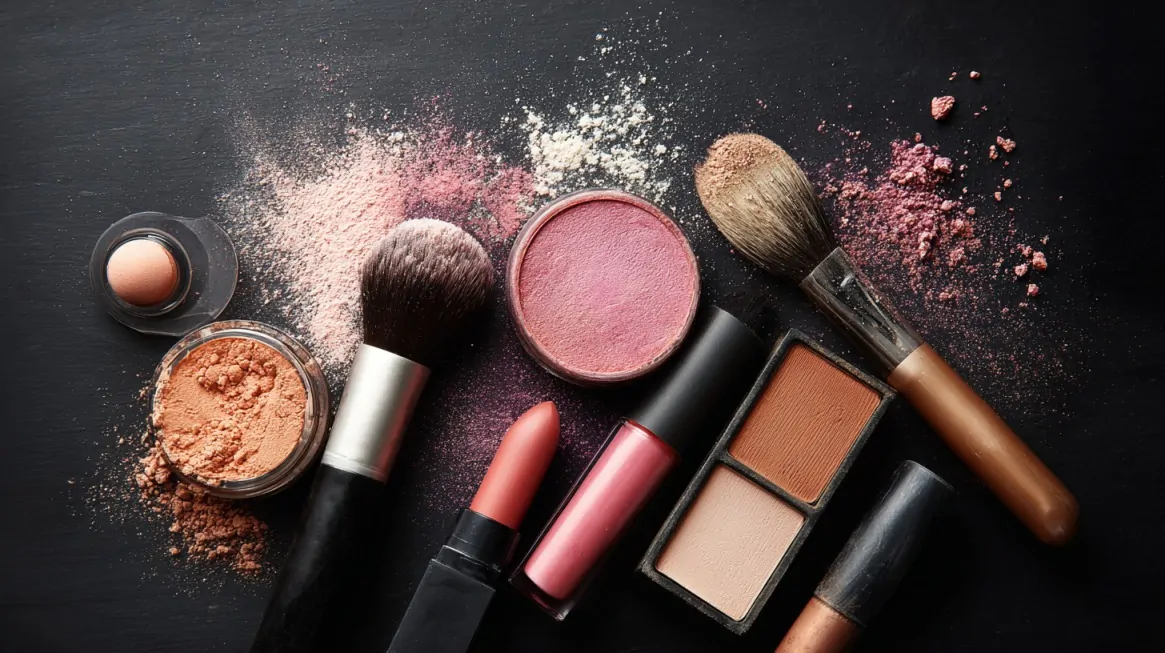
Share Post:
Estrogen, a crucial hormone for both women and men, plays a significant role in various bodily functions, from regulating the menstrual cycle to maintaining healthy skin.
However, one often overlooked factor that can negatively impact estrogen levels is poor sleep.
Sleep disturbances, whether caused by stress, lifestyle choices, or medical conditions, can interfere with hormonal balance, specifically estrogen, and have adverse effects on skin health. In this article, we’ll explore how insufficient or poor-quality sleep can affect estrogen production and how that, in turn, impacts skin health.
We will provide evidence-backed insights into the mechanisms at play, supported by real-world examples and actionable tips to manage sleep and hormonal health effectively.
The Link Between Sleep and Estrogen
Estrogen levels are regulated by a delicate balance within the endocrine system. The hypothalamus and pituitary glands in the brain signal the ovaries to produce estrogen in women, and the adrenal glands and testes in men also contribute to estrogen synthesis.
Research has shown that sleep, particularly its quality and duration, plays a critical role in maintaining this balance.
How Sleep Affects Hormone Regulation
Sleep, especially during the deeper stages like REM (Rapid Eye Movement) and slow-wave sleep, is crucial for hormone regulation. Studies indicate that sleep deprivation or poor-quality sleep can disrupt the circadian rhythm, which governs the release of hormones, including estrogen.
Disruption of this rhythm leads to an imbalance, often manifesting in symptoms like irregular menstrual cycles, weight gain, mood swings, and skin problems.
One significant study published in The Journal of Clinical Endocrinology & Metabolism found that poor sleep patterns could lower estrogen levels in premenopausal women. The study emphasized that even a single night of poor sleep could impact estrogen synthesis, making it more difficult for the body to maintain normal levels of the hormone.
Statistics:
- According to the National Sleep Foundation, more than 30% of adults report short-term sleep disturbances, with long-term insomnia affecting about 10% of the population.
- A study conducted by the American Academy of Sleep Medicine found that women who averaged fewer than 6 hours of sleep per night showed significantly lower estrogen levels compared to those who maintained 7 to 8 hours of sleep.
These findings highlight the importance of getting sufficient, quality sleep to maintain hormonal balance, particularly estrogen.
The Impact of Poor Sleep on Estrogen Levels

When sleep is disrupted, the body’s ability to regulate estrogen can be hindered, leading to various consequences. Let’s break down how poor sleep specifically impacts estrogen production and its broader effects on the body.
1. Disrupted Hormonal Secretion
Sleep deprivation can lead to an imbalance of key hormones that regulate estrogen levels. Research has shown that poor sleep affects the secretion of gonadotropin-releasing hormone (GnRH) from the hypothalamus, which in turn influences the pituitary gland’s production of luteinizing hormone (LH) and follicle-stimulating hormone (FSH).
These hormones are crucial for the ovaries’ estrogen production. If the balance of these hormones is disturbed due to inadequate sleep, estrogen production can be reduced.
In postmenopausal women, inadequate sleep may also trigger an increase in the secretion of cortisol, the stress hormone. Elevated cortisol levels can further suppress estrogen production, exacerbating the negative effects of poor sleep on hormonal health.
2. Increased Stress Response
Sleep deprivation increases the body’s stress response, which triggers an elevation in cortisol. Chronic high cortisol levels can inhibit estrogen production.
This is particularly significant in women during menopause, as lower estrogen levels are already a concern. Stress-related cortisol release further exacerbates estrogen deficiency, leading to symptoms such as hot flashes, mood swings, and disrupted sleep, creating a vicious cycle.
A study by the National Institutes of Health found that sleep deprivation in women resulted in elevated cortisol and lower estrogen levels, emphasizing the complex relationship between sleep and stress hormones. The increased cortisol can disrupt the hypothalamic-pituitary-ovarian axis, further impairing estrogen production.
3. Sleep Duration and Estrogen Imbalance
The amount of sleep plays a crucial role in regulating estrogen levels. Chronic sleep deprivation (less than 6 hours per night) can lead to a significant decrease in estrogen levels.
One study published in Menopause, the journal of the North American Menopause Society, concluded that women who had disrupted sleep patterns, including waking up frequently during the night, had lower estrogen levels than those who slept uninterrupted for at least 7 hours.
Interestingly, even short-term poor sleep has been shown to cause fluctuations in estrogen levels. For example, women who experienced two nights of poor sleep were found to have estrogen levels significantly lower than their baseline, indicating that even brief disturbances can disrupt hormonal balance.
For those experiencing poor sleep that impacts their hormonal balance and skin health, incorporating sleepwear like cooling nightwear by Cool-Jams can make a significant difference. These garments are designed to keep your body cool and comfortable throughout the night, helping to prevent overheating, which can disturb your sleep.
How Low Estrogen Levels Affect Skin Health

Estrogen is vital for maintaining skin elasticity, hydration, and thickness. This is because estrogen plays a role in stimulating the production of collagen, a protein that helps keep skin firm and youthful.
When estrogen levels decrease, either due to aging, menopause, or sleep disturbances, skin health can deteriorate.
1. Loss of Skin Elasticity and Firmness
Collagen is the primary structural protein in the skin, and estrogen is crucial for collagen production. As estrogen levels decline, particularly during menopause or due to poor sleep, the skin loses its ability to regenerate collagen effectively.
This leads to skin that appears saggy, wrinkled, and thinner. Studies have shown that estrogen deficiency results in a significant reduction in the skin’s collagen content, leading to more visible signs of aging, such as fine lines and wrinkles.
A study published in The Journal of Clinical Endocrinology and Metabolism found that women with lower estrogen levels, especially during menopause, had significantly thinner skin, which is more prone to damage and aging.
Sleep-deprived individuals, particularly those experiencing chronic sleep deprivation, may face accelerated skin aging due to a similar reduction in collagen synthesis.
2. Dry Skin and Reduced Hydration

Estrogen also plays a role in maintaining skin hydration by stimulating the production of hyaluronic acid, which helps retain moisture in the skin. When estrogen levels drop, hyaluronic acid production decreases, leading to dry and flaky skin.
Moreover, poor sleep can directly impact skin hydration. A study published in the Sleep Health Journal found that individuals who experienced poor sleep quality had reduced skin hydration compared to those who maintained good sleep patterns.
Chronic lack of sleep can exacerbate this effect, making it difficult for the skin to maintain a healthy moisture balance.
3. Increased Sensitivity and Acne
Low estrogen levels due to poor sleep can increase skin sensitivity, making it more prone to irritation and inflammation. This can lead to conditions like eczema, rosacea, and other inflammatory skin conditions.
Additionally, sleep deprivation has been linked to an increase in acne. Studies have shown that poor sleep triggers an increase in sebum production, which can clog pores and contribute to breakouts.
A study from The Journal of Investigative Dermatology found that individuals with sleep deprivation experienced more frequent acne breakouts. The increased cortisol levels from poor sleep, coupled with lowered estrogen, can disrupt the skin’s natural balance and lead to inflammatory skin conditions.
Practical Tips for Protecting Your Estrogen and Skin Health
If you want to protect both your estrogen levels and your skin health, focusing on improving your sleep habits is key. Here are some practical tips to help you optimize both your hormone and skin health:
Tip
Explanation
Prioritize Sleep Quality
Aim for 7 to 9 hours of uninterrupted sleep each night. Create a calm, dark environment, limit screen time before bed, and follow a consistent sleep schedule.
Manage Stress
Stress can increase cortisol levels, which suppress estrogen. Practice stress-reducing activities such as yoga, meditation, or mindfulness to help maintain hormone balance.
Stay Hydrated
Drinking enough water supports skin hydration and helps combat the dryness caused by low estrogen levels.
Use Skin Care Products with Estrogen-Boosting Ingredients
Look for products that contain hyaluronic acid, peptides, and retinoids, which can help improve skin hydration and elasticity, counteracting the effects of low estrogen.
Exercise Regularly
Regular physical activity can help regulate hormones and improve sleep quality, which in turn supports estrogen production. However, avoid excessive high-intensity exercise, as it can increase cortisol levels.
Monitor Your Diet
Eating a balanced diet rich in antioxidants, healthy fats, and vitamin C can help support collagen production and skin health. Foods like berries, avocados, and nuts can provide essential nutrients to maintain skin elasticity and hydration.
Conclusion
@mattrobertsevolution Poor Sleep Impacts Your Hormones To ensure our bodies and hormones are functioning well, we need to aim for around eight hours sleep per night. But don’t stress about hitting exactly eight hours every single night, some may be slightly less or others more, so just do your best to get as close to that higher number as possible. The timing of sleep is also crucial. Going to bed before midnight is important because our hormones follow an internal biological clock. Growth hormone and testosterone peak in the early hours, so consistently going to bed late can disrupt these processes. Quality of sleep obviously matters too. Waking up occasionally is normal, but consistently waking up early, like at 2am, can conflict with your body’s internal clocks and hormones. This disruption can have long-term negative effects. Focus on maintaining a regular sleep schedule and creating a restful environment to support your body’s natural rhythms. I discuss this and much more with my guest in the latest episode of the Evolution Lab, our Hormone Health Specialist at Evolution, Dr Nicky Keay. We cover the complexities of hormones and their interactions, the impact of lifestyle on hormone levels and the importance of sleep, exercise and diet in maintaining hormone balance. We also discuss the role of hormones in overall health, including metabolic and bone health, the decline of testosterone levels in men, the journey of menopause and the benefits of HRT plus the impact of vaccinations, sedentary behaviour and alcohol consumption on menstrual cycles. The overall outcome is a fascinating conversation on all aspects of hormone health, to help you better understand the importance of hormone interactions, their roles in various bodily functions and as a result, the need for taking a highly individualised approach to optimise your hormones and general health. Check out the full episode via the link in this video. #sleep #sleepquality #sleephealth #sleephygiene #sleepwell #sleepbetter #hormonehealth #hormonebalance #testosterone #cortisol #lackofsleep #hormones #hormoneimbalance ♬ original sound – Matt Roberts
Poor sleep can have a profound impact on estrogen levels, which in turn affect skin health. From disrupted hormonal secretion to increased stress responses, the consequences of insufficient or poor-quality sleep are far-reaching.
Low estrogen levels can lead to skin problems such as dryness, loss of elasticity, and increased sensitivity. By prioritizing good sleep hygiene, managing stress, staying hydrated, and taking care of your skin with the right products and habits, you can protect both your hormonal and skin health.
Making sleep a priority not only improves your overall well-being but can also help you maintain a healthy, radiant complexion for years to come.
Related Posts:
- How Sleep Quality Affects Your Skin’s Aging Process
- How Stress Affects Your Hair and Skin Health: What…
- How Muscle Tension Affects Sleep and What You Can Do…
- Feel Younger, Sleep Better – The Secret Power of…
- What Sudden Hair Loss Says About Your Overall Health
- 8 Questions To Ask Before You Change Diet Based On A…








